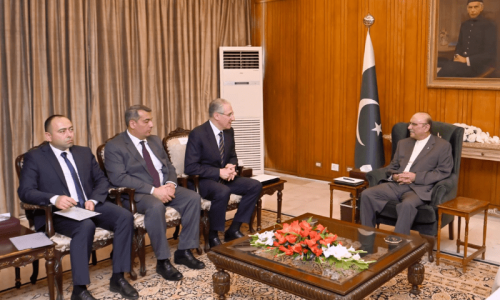INDUSTRY associations are stepping forward to express their disappointment that commitments made to them are quickly withdrawn, and one of the largest such groups has even referred to this pattern as ‘knee-jerk U-turns’ in policy implementation. The latest such example is a notification issued by the power division that tells all distribution companies to include add-ons and surcharges on top of the 7.5 cents per unit that the exporter community was told they will have to pay for power. The commitment was given at a very high level last year and on Jan 13 of this year, it was not only withdrawn, but exporters were told it would be effected retroactively from Jan 1, 2019. What this means, effectively, is not only that the government is withdrawing the commitment, but has reneged on it altogether and now wants to collect all the monetary benefit that exporters have availed through it to be returned to it.
Beyond the power tariff, the government has also reversed a tax credit that had been offered earlier for investment in plant and machinery. This had the same effect as being retrospectively applicable since the investment had already been made under the assumption that the funds utilised would benefit from the tax credit. The government could reverse its commitment, but the funds once committed cannot be similarly reversed. On top of that, the government had announced an incentive package for mobile phone assembly in Pakistan, and once the investment had been made by a number of parties, it cut import duties on mobile phones, rendering the investment suddenly non-competitive. One after another, examples are piling up of the government making commitments and promises on one day, then either reneging on these outright or finding clever ways to not deliver on its commitments the next.
This is no way to run an economy. Industry leaders are now openly suggesting that policymaking has become dysfunctional. “Ministries are working in silos,” the Pakistan Business Council said in its statement on the problem, and the only priority that seems to be guiding government decision-making is ‘chasing revenue’. These reversals are all happening mainly for revenue purposes as the government ramps up its efforts to meet the ambitious targets laid out in the IMF programme in the second half of the fiscal year. In the process, all other priorities are obliterated, whether these include the promotion of exports or indigenisation of mobile phone assembly or the promotion of investment and industrial capacity. This speaks to a state of near policy paralysis with the government reduced to chasing revenue and building reserves to meet short-term targets only. A strong hand is needed on the tiller to navigate the choppy waters of the ongoing adjustment to rectify this situation. Left to its own devices, this sort of economic management will not pave the way for growth.
Published in Dawn, January 26th, 2020












































